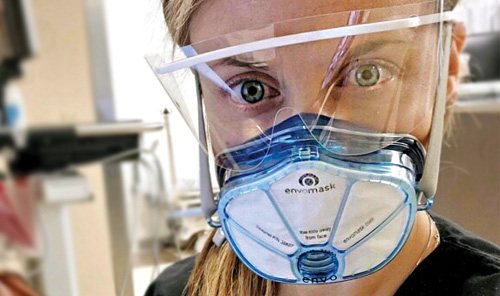Front Line: COVID-19 Spurs More Automated Manufacturing
The global pandemic has presented manufacturers with new labor challenges, which are being addressed by new technologies and automation.
Q3 2020

With COVID-19 and the need for social distancing, these shortages are escalating. Many factories have shuttered to protect workers and prevent COVID-19’s spread. Even before this global crisis, in 2018 Deloitte had already projected that manufacturers would face shortages of some 2.4 million workers through 2028.
New Technologies
New technologies and automaton can be a solution to this problem. Capgemini Research Institute reports that the market for smart manufacturing platforms reached $4.4 billion in 2019 and expects it to grow steadily over the next five years. Just recently, Thomas, which specializes in industrial sourcing platforms, found in its own survey that one in four U.S. manufacturers are considering expanding industrial automation as a result of COVID-19. An additional 20 percent of companies reported they already have systems in place.
One such company is Sleepnet in Hampton, N.H., which manufactures gel masks for obstructive sleep apnea and non-invasive ventilation. “Since COVID-19 hit, our team has seen a significant increase in demand of the exceptional envo® mask, a reusable N95 respirator mask used in trades, industrial environments, and many other NIOSH N95-rated applications, and now for all frontline workers,” says Tom Moulton, CEO and president of Sleepnet. Consequently, Sleepnet has increased capacity by working longer hours and upgrading existing machines by retrofitting automation components.
The market for smart manufacturing platforms reached $4.4 billion in 2019 and it is expected to grow steadily over the next five years. “We anticipate a 30 percent increase in production as well as more time to do secondary operations by developing work cells for more throughput with less labor,” Moulton says. “In the next phase of our work, we will increase the number of machines we use, which will double our capacity by the end of the year.”
Custom Machinery
Steven Douglas Corp. (SDC) has seen an uptick in automation requests, particularly among manufacturers in the medical and pharmaceutical industry and consumer products. SDC designs, engineers, and builds custom machinery for factory automation.
Ashley Belliveau, who handles SDC’s Business Development, points to two reason: the lack of quality labor in manufacturing facilities and an overall shift to implement social distancing, e.g., taking a fully manual line and converting it to a semi-automated line; spacing operators 6 feet apart with an automated conveyor and part-tracking system in between.
Today SDC finds that more customers are purchasing both full-automated and semi-automated machines to manufacture the same product. For example, a customer purchased a large, custom, fully automated machine to inspect and package a drill bit.
“We were able to use some of the automated processes from the fully automated machine and adapt them for two identical semi-automated work benches to perform the same processes,” she explains. “The semi-automated solutions offer the ability to run smaller batches of production in a variety of sizes without any machine change over.”
SDC also notices more manufacturers being comfortable with integrating industrial robots and complex machine vision and inspection systems. “Many manufacturers are investing in training their operators to monitor automated machines instead of training operators to manufacture products,” she explains.
Project Announcements
Shapeways Holdings Expands Livonia, Michigan, Operations Complex
07/07/2023
Germany-Based Becker Robotic Equipment Plans Canton, Georgia, Manufacturing Complex
12/07/2022
LEGO Group Plans Chesterfield County, Virginia, Manufacturing Plant
06/17/2022
Scotland-Based PowerPhotonic Plans Sahuarita, Arizona, U.S. Headquarters-Production Campus
04/04/2022
A. Duie Pyle Plans Manassas-Richmond-Roanoke, Virginia, Cross Dock Service Centers
03/15/2022
Black Buffalo 3D Corporation Relocates-Plans Smithfield Township, Pennsylvania, Manufacturing Complex
02/07/2022
Most Read
-
The Workforce Bottleneck in America’s Manufacturing Revival
Q4 2025
-
Rethinking Local Governments Through Consolidation and Choice
Q3 2025
-
Data Centers in 2025: When Power Became the Gatekeeper
Q4 2025
-
Lead with Facts, Land the Deal
Q3 2025
-
Tariff Shockwaves Hit the Industrial Sector
Q4 2025
-
Investors Seek Shelter in Food-Focused Real Estate
Q3 2025
-
America’s Aerospace Reboot
Q3 2025



